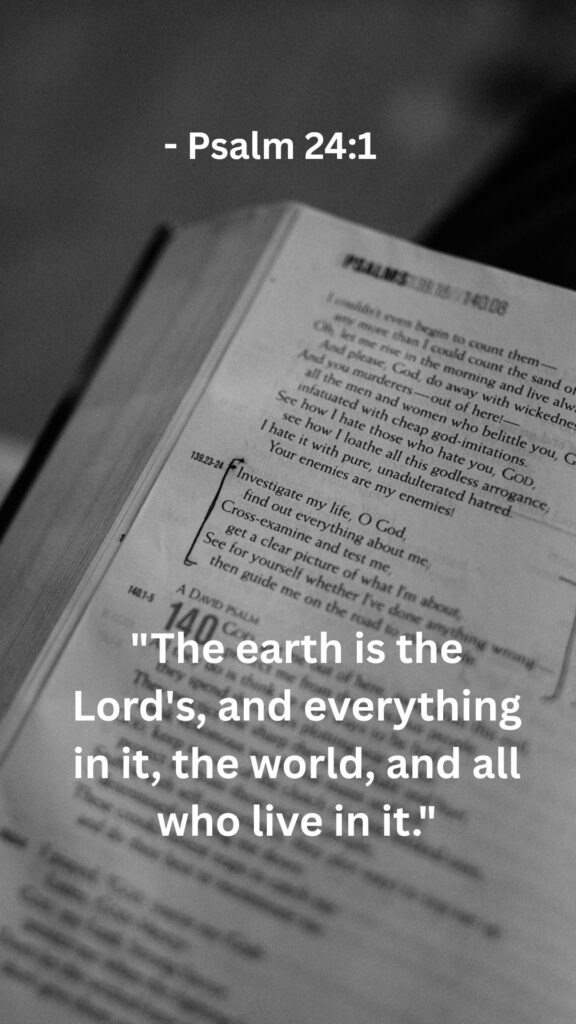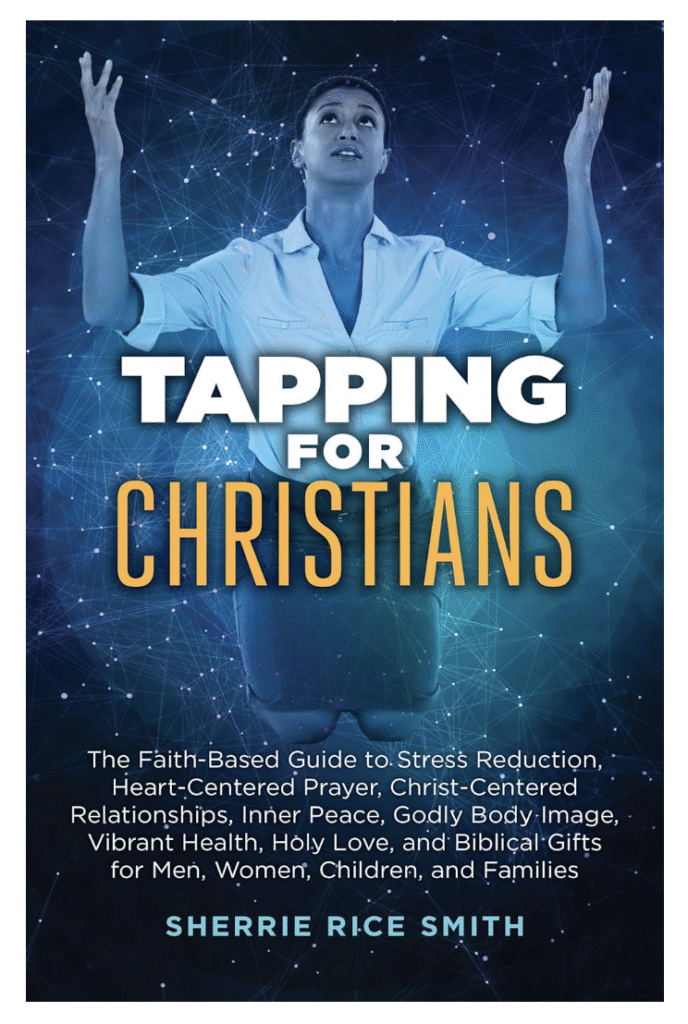No products in the cart.
Christianity and Environmental Responsibility: Eco-conscious Approaches in Faith
This post contains paid and/or affiliate links. I make a small commission at no extra cost to you. Please see our Privacy Policy.
You know what’s amazing? The very first job God gave humanity was to take care of the Earth. Not preach sermons, not build cathedrals, not even make Christian TikToks—just care for this incredible planet He created. And honestly, when you really think about it, the connection between faith and caring for the environment is one of the most beautiful parts of Christianity.
It’s about love, stewardship, and honoring the gift we’ve been given.
If you’ve ever wondered how your faith connects to recycling, conservation, or protecting our planet, you’re in for a treat. Because Christianity has some pretty inspiring things to say about why and how we should care for creation.
The Biblical Blueprint: We’re Stewards, Not Owners
Here’s where the story begins: Genesis. God creates this breathtaking world—mountains, oceans, forests, animals, the whole shebang—and then turns to humans and says, “You’re in charge of this. Care for it, cultivate it, make it flourish.”
Christians call this concept “stewardship,” and it’s actually a huge honor. God trusted us with His creation. That’s pretty incredible when you think about it.
The Bible laid out these ideas about interconnectedness thousands of years before the term “ecology” even existed in the mid-19th century. Everything’s woven together—the trees, the animals, the water, us. We’re all part of this massive, beautiful system that God designed with care.

What Stewardship Actually Means
Being made in God’s image comes with some wonderful responsibilities:
- We get to manage Earth’s resources wisely and ensure they’re around for future generations
- Our choices matter—we can make positive impacts on the planet and the people around us
- Dominion means partnership with God, working alongside Him to nurture creation
Think of it like this: If someone trusts you with something precious, you naturally want to take good care of it. Earth is God’s masterpiece, and He’s invited us to be co-caretakers. That’s a privilege worth celebrating.
Pope Francis Champions Creation Care
In 2015, Pope Francis wrote an encyclical called Laudato Si, and it’s honestly one of the most hopeful documents about faith and the environment you’ll ever read.
He celebrates young people for demanding change and inspiring others to wake up to environmental needs. And he emphasizes something beautiful: we’re all in this together. When communities work collectively to protect the environment, incredible things happen.
Francis doesn’t just point out problems—he inspires solutions and reminds us that caring for creation is a natural extension of our faith.
Christianity + Ecology = A Natural Fit
Your relationship with God naturally influences how you treat the planet. It’s a beautiful connection.
When you believe God created the universe and called it “good,” caring for it becomes an act of worship. You’re literally honoring God’s work when you conserve resources, reduce waste, and live sustainably.
Jesus taught love, compassion, and respect for all creation. When you make eco-friendly choices, you’re living out those values in a tangible way. You’re showing love for your neighbors (both now and in the future) by protecting their home.

The Opportunity Ahead: Where Churches Can Lead
Here’s something exciting: When clergy leaders talk about environmental issues, their congregations respond with increased concern and action.
That’s powerful. It means change is absolutely possible.
Right now, environmental topics don’t get much airtime in religious education or from the pulpit. But imagine if that changed. Imagine if churches across the country made creation care a regular part of their teaching and practice.
The Path Forward Looks Bright
Here’s how we can make a real difference:
- Integrate environmental education into theological training so future leaders are equipped to guide their communities
- Encourage clergy to share the biblical foundations of creation care regularly and enthusiastically
- Make eco-conscious living a visible, celebrated part of church life—from solar panels to community gardens to recycling programs
Christian communities have incredible influence. When churches get passionate about something, they create waves of positive change. Feeding the hungry, caring for orphans, supporting communities in need—Christians have a track record of making things happen when they unite around a cause.
Creation care could be the next beautiful movement.
Theological Foundations: The Heart of the Matter
Let’s explore why this matters so deeply. The Christian case for environmental responsibility rests on some truly inspiring principles:
1. Creation Reflects God’s Glory
Everything God made reveals something about who He is. Mountains show His majesty. Oceans display His power. Forests demonstrate His creativity.
When you protect creation, you’re preserving a living testimony to God’s character. That’s sacred work.
2. Justice and Love for Neighbors
Caring for the environment is an expression of love. When we protect clean air, water, and healthy ecosystems, we’re caring for people—especially those who are most vulnerable.
Environmental stewardship is neighbor-love in action. It’s practical compassion that extends across borders and generations.
3. Christ Redeems All Creation
Christianity teaches that Jesus came to restore all of creation, not just human souls. That’s expansive and hopeful.
Working toward environmental healing means participating in Christ’s redemptive work. You’re literally partnering with God in restoration. How beautiful is that?
Practical Steps: What You Can Actually Do
Ready to put this into action? You don’t need to do everything at once. Start where you are:
- Talk about creation care with enthusiasm in your church or small group
- Practice sustainable living as an act of worship—reduce waste, conserve energy, make thoughtful purchases
- Support policies and organizations that protect God’s creation
- Teach kids about stewardship so they grow up understanding this calling
- Celebrate environmental wins in your community

And here’s something powerful: Be vocal about how your faith inspires you to care for creation. When other Christians see that connection, it opens doors for beautiful conversations and collective action.
The Bottom Line: An Invitation to Something Beautiful
Christianity and environmental responsibility aren’t just compatible—they’re beautifully intertwined.
You’re called to be a steward, and that’s actually an honor. It means God trusts you with something precious. He’s invited you into partnership with Him.
Yes, there’s work to do. Churches are at different places on this journey. But the potential for positive change is enormous and exciting.
When Christians embrace what the Bible teaches about caring for creation, we become a powerful force for good. We can show the world that faith celebrates science, sustainability, and stewardship. We can demonstrate that loving God naturally leads to loving what He’s made.
So here’s your invitation: start treating Earth like the incredible gift it is. Not out of guilt or fear, but out of gratitude, love, and joy.
You’re managing something precious for Someone who cares deeply about it. And honestly? There’s something pretty wonderful about that calling.
Let’s care for creation together—with hope, enthusiasm, and faith that guides our every step.
FAQ
How does Christianity view environmental responsibility?
Christianity views environmental responsibility as a critical aspect of faith, rooted in the belief that humans are stewards of God’s creation.
What is the basis for environmental stewardship in Christianity?
The basis for environmental stewardship in Christianity is the belief that God is the creator of all things and that humans, created in God’s image, have a privileged place among creatures and are called to exercise stewardship over the Earth.
Are Christians actively engaged in pro-environmental behavior?
Studies have shown that Christians are less likely to engage in pro-environmental behaviors, possibly due to a lack of emphasis on environmental issues in religious education. However, there is hope for change, as congregations with clergy leaders addressing environmental concerns have shown increased concern for environmental issues.
How can Christianity become a force for environmental good?
By integrating environmental education into religious instruction and encouraging clergy leaders to address environmental concerns from the pulpit, Christianity can become a powerful force for environmental good.
















